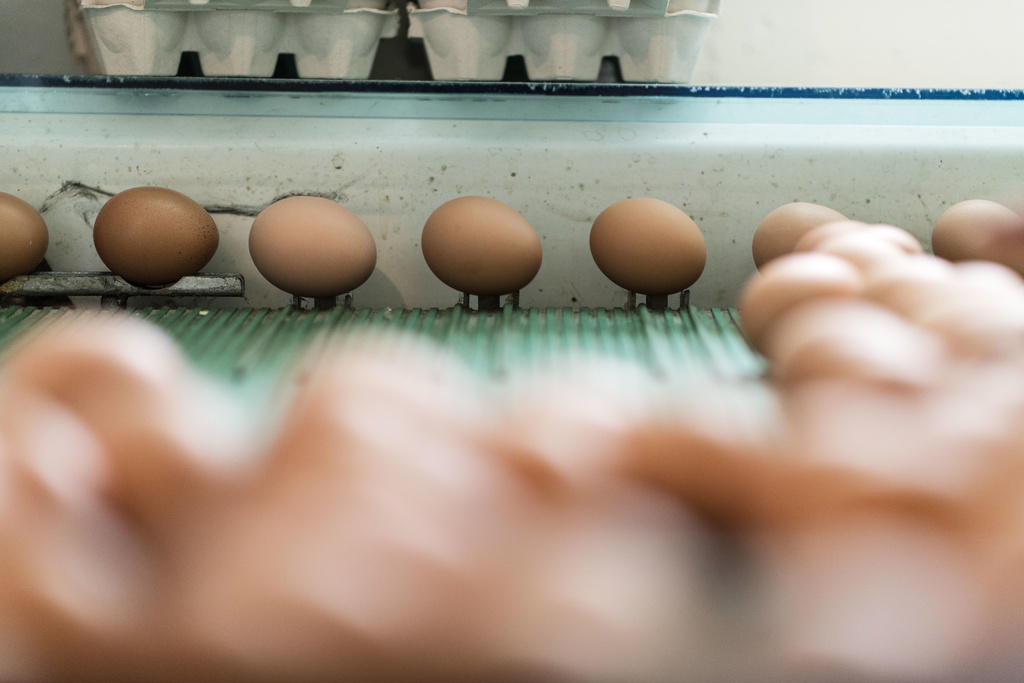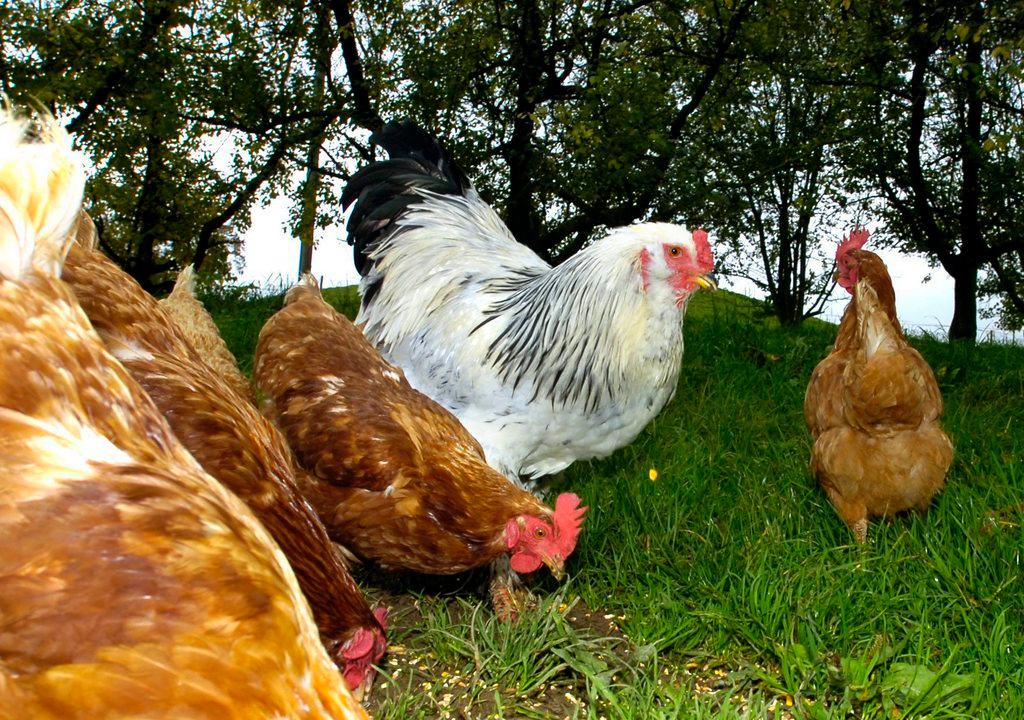
Cooped-up Swiss consume record number of eggs

The average Swiss went through 189 eggs last year, the highest amount this century. Covid-19 certainly played a role, forcing people to stay at home and cook for themselves, but there were other factors.
With Swiss restaurants shut for much of the year, home cooks looking for simple recipes reached for eggs. A record 927 million were sold in 2020, the Federal Office for Agriculture said on Thursday.
But coronavirus was not the only reason for this increase, it said. For many vegetarians, eggs are a valuable source of protein and an alternative to meat. It also pointed out that eggs had managed to shake off their bad reputation for cholesterol. Population growth was also a factor.
Of the 189 eggs consumed per capita in 2020 – five more than during the previous year – 121 were produced in Switzerland, also an increase. But this was not related to the pandemic, according to the agriculture office. This figure had already risen in 2019, largely the result of ever-increasing demand for domestic products.
For the second year in a row, more than a billion Swiss eggs were produced. The 1,064,000,000 eggs represented an increase of 6.3% over the previous year.

More
Egg production keeps on rising
According to the agriculture office, the production of organic eggs also increased significantly, accounting for 18.5% of production, another record.
Egg imports
The increased demand for eggs could not be met by Swiss production alone, which led to a temporary shortage of eggs, the office said. As a result, more eggs had to be imported – an increase of 20% to 303 million.
The Netherlands was the main supplier: imports of eggs for consumption rose by 27% and those for processing by 30%.

More
Switzerland’s biggest retailer to sell only free-range eggs by 2020

In compliance with the JTI standards
More: SWI swissinfo.ch certified by the Journalism Trust Initiative



























You can find an overview of ongoing debates with our journalists here . Please join us!
If you want to start a conversation about a topic raised in this article or want to report factual errors, email us at english@swissinfo.ch.